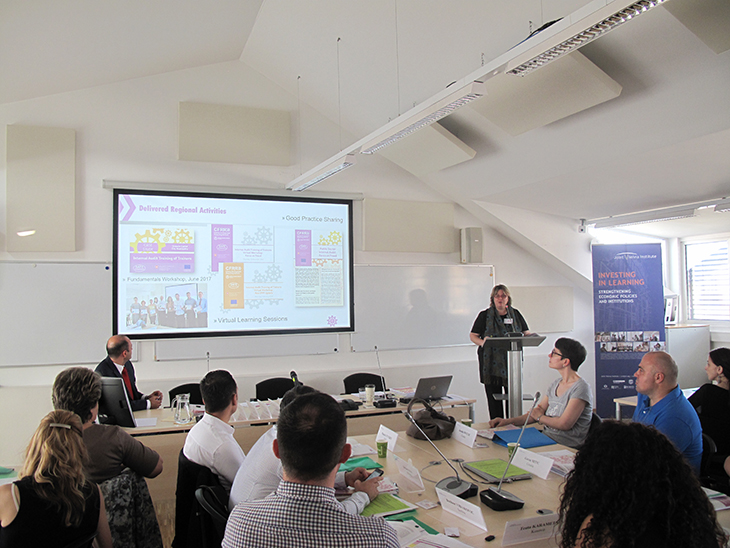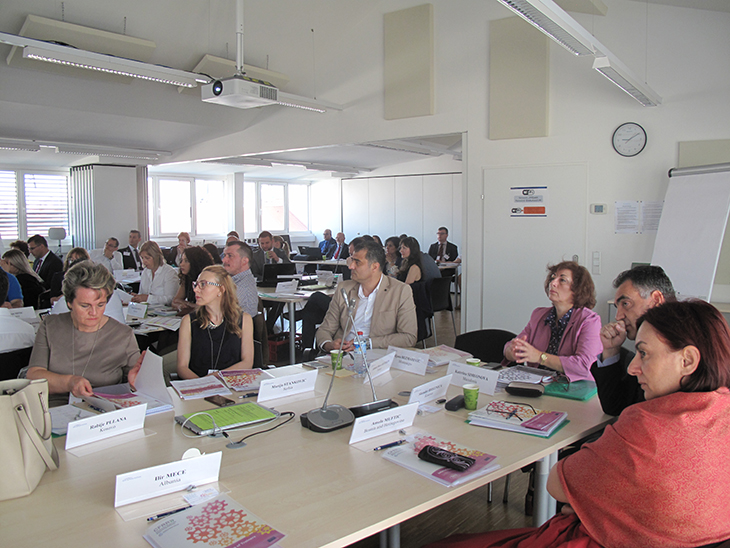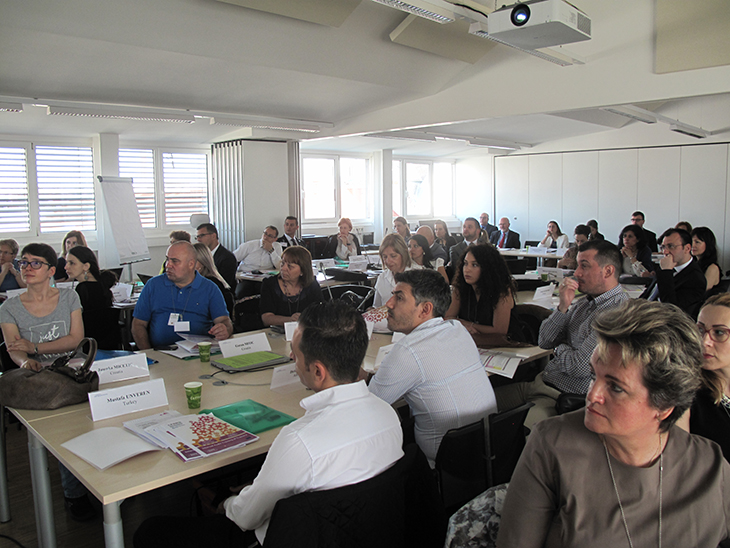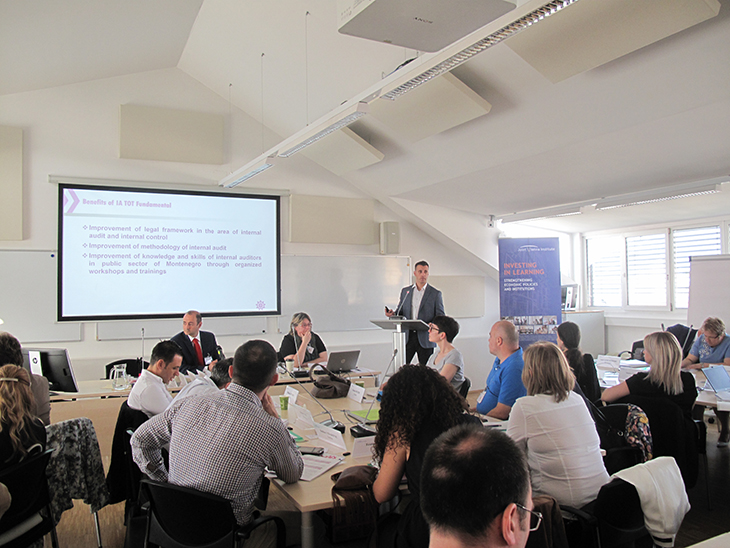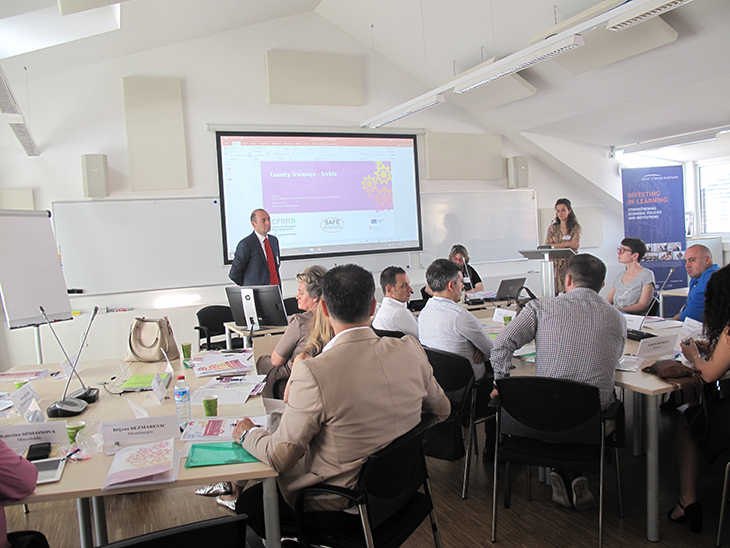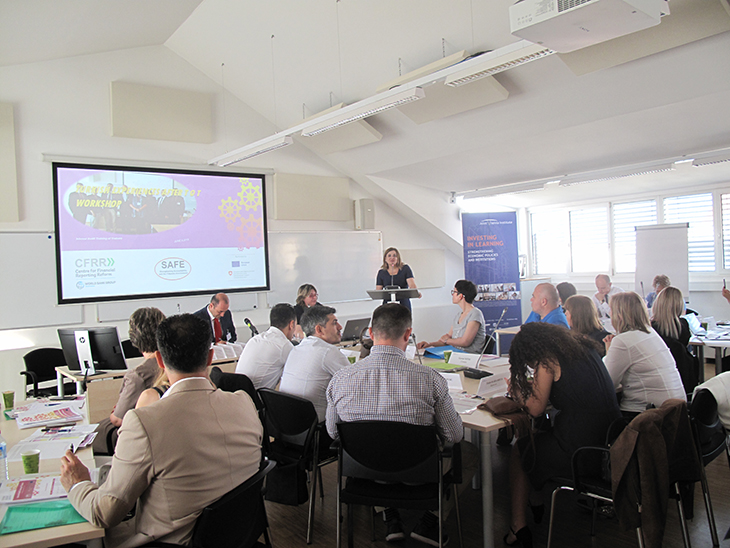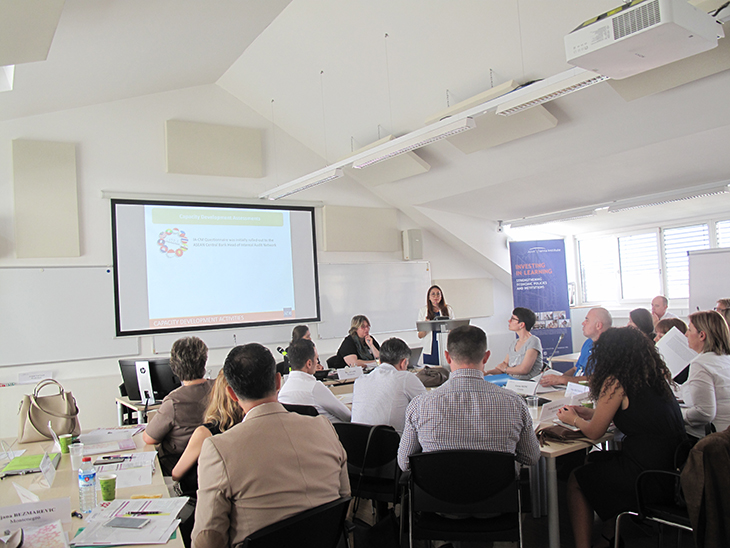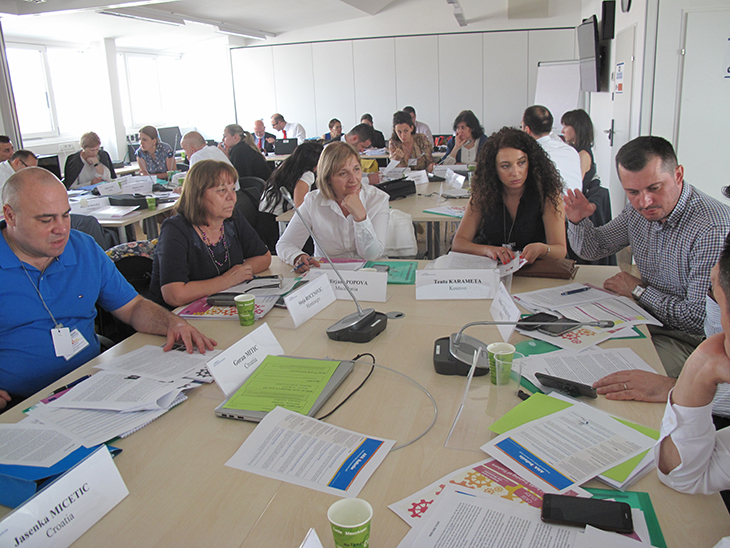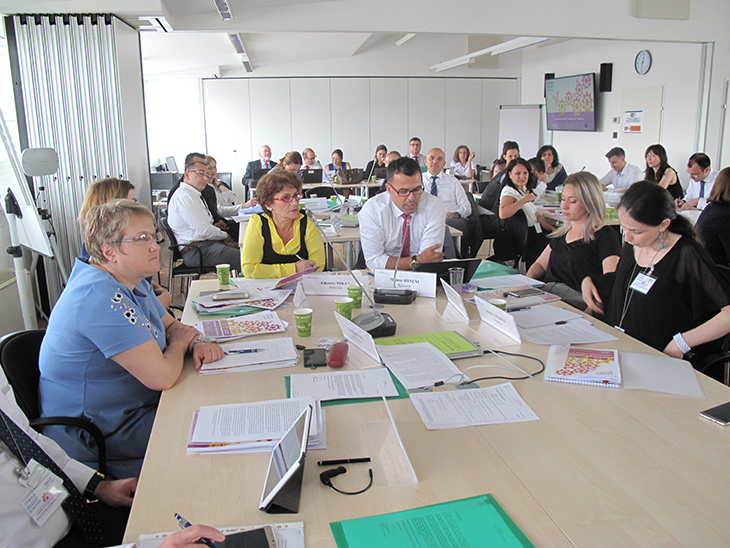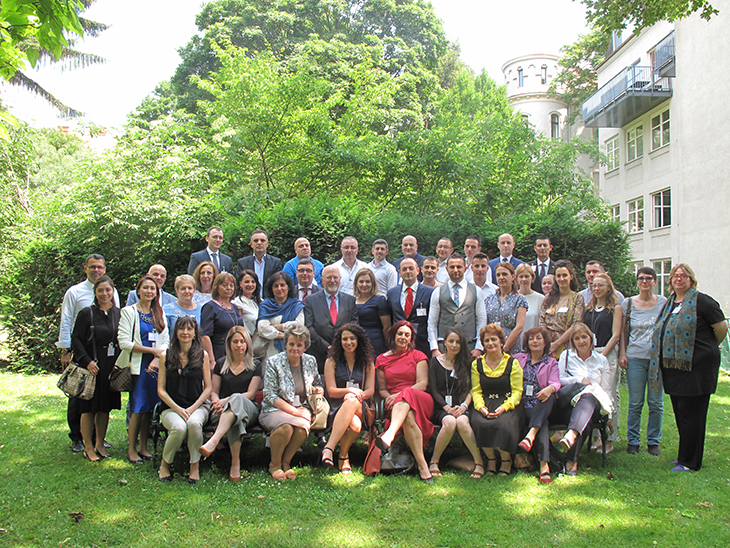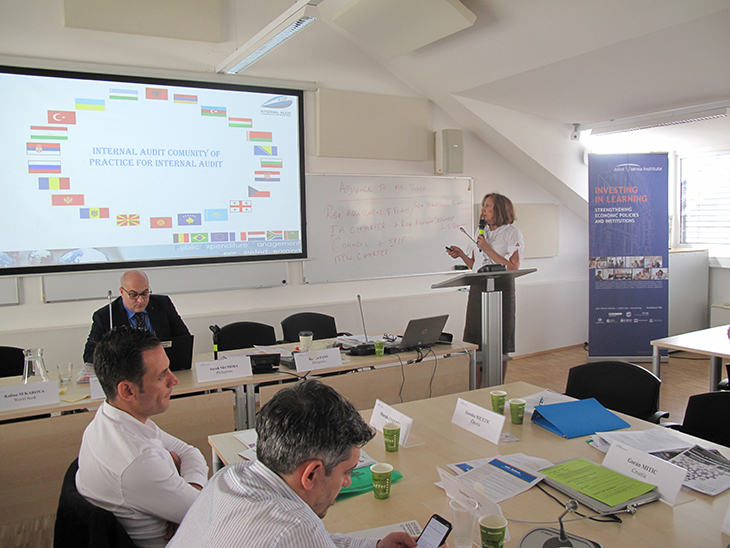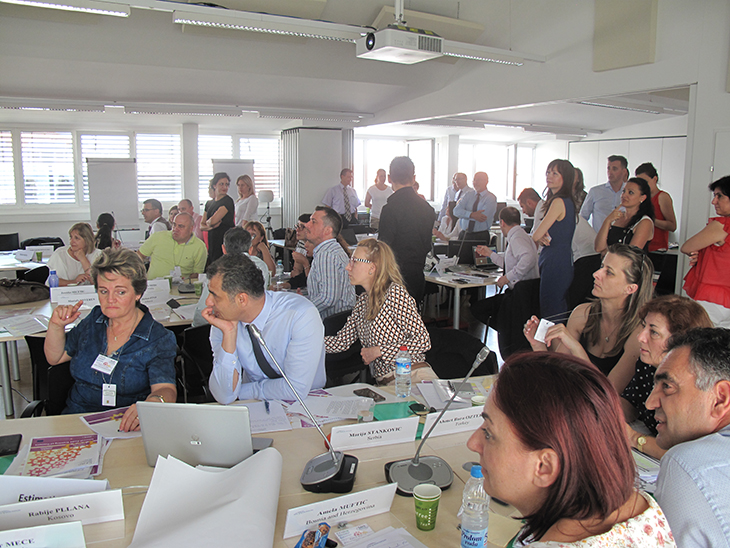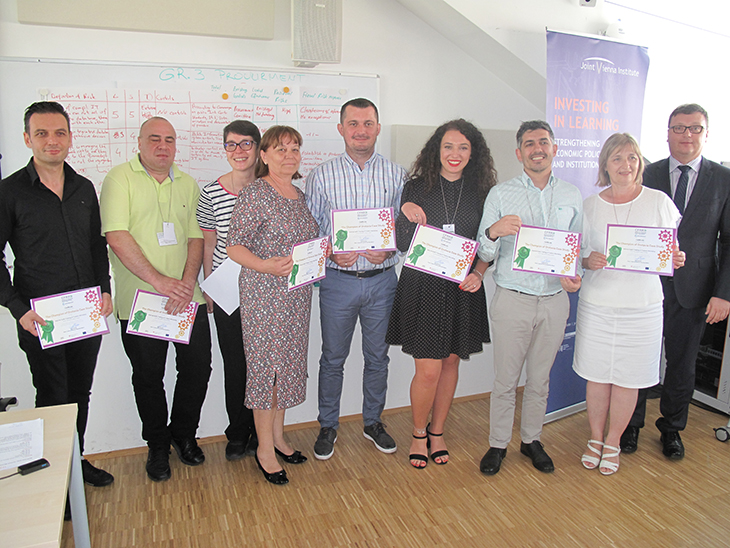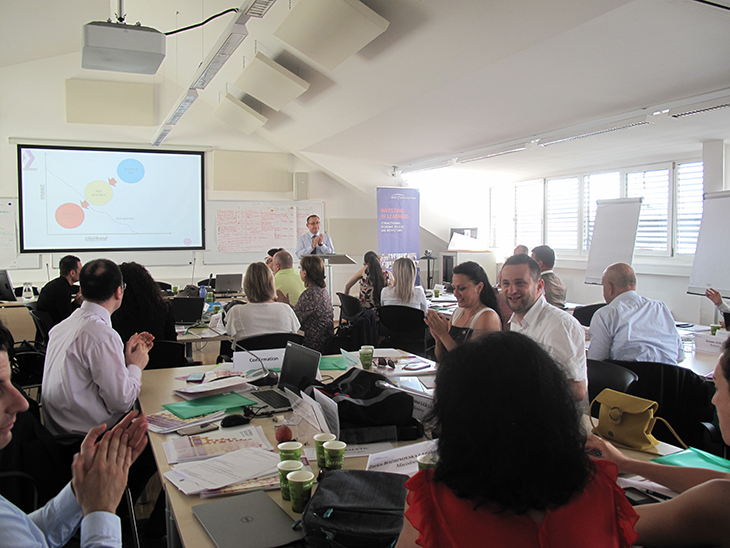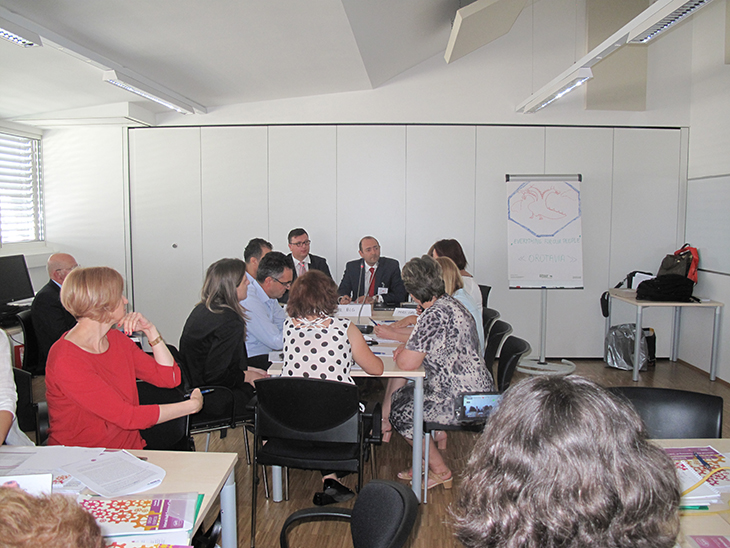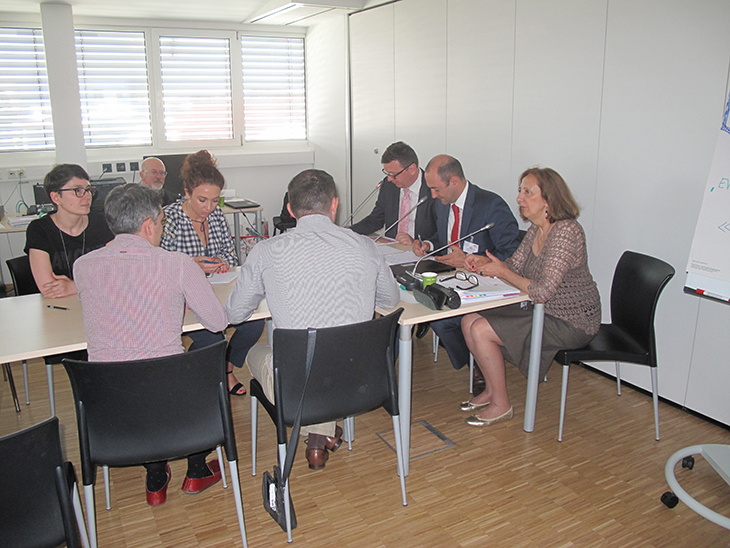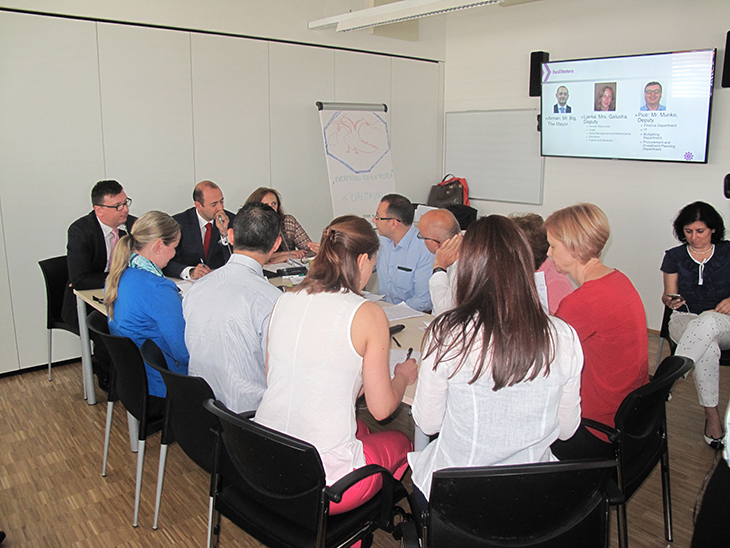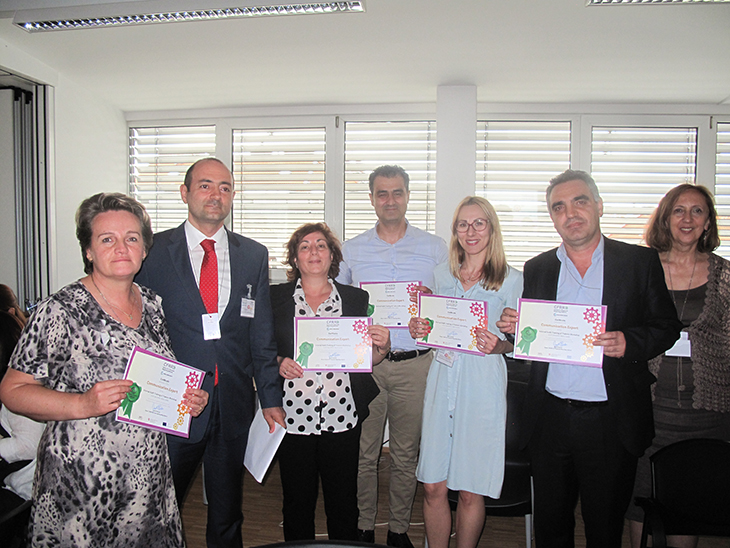The series of Internal Audit Training of Trainers (IA ToT) workshops within the SAFE program continues, and the IA ToT Community of Practice met in Vienna during June 4-7, 2018 when then Advanced Module was delivered. The overall aim of the Program is to develop the capacity of public sector internal auditors to deliver high-quality internal audit training within their countries/institutions, based on the International Standards for the Professional Practice of Internal Auditing (ISPPIA) and international good practices in public sector internal auditing.
The approach and format of the IA ToT program workshops are designed to be highly interactive and cover both technical topics and soft skills. This workshop convened approximately 40 trainers from seven beneficiary countries, including Albania, Bosnia and Herzegovina, Kosovo, Macedonia, Montenegro, Serbia and Turkey. Participants from Croatia participated as self-payers.
During the Advanced Module, participants familiarized with many advanced internal audit topics such as responsibilities of the Head of the Internal Audit, Risk Based Strategic and Annual Audit Planning, Relationship between Internal Audit with Financial Inspection and External Audit, Quality Assurance and Improvement, Fraud, Performance Audit, and others.
Participants had an opportunity to engage in many practical case studies as the simulated internal audit Case Study “Orotavia”, including role play exercises while obtaining evidence of internal audit engagement and presenting the results of the internal audit during a simulated management meeting. Community of Practice members also participated in two mini case studies supplementing the Orotavia case study with a focus on fraud risk assessment and engaged in a quality assurance and improvement program exercise regarding attribute and performance internal audit standards. Further, the IA ToT Community of Practice members competed for the prize “Champion of the Orotavia Case Study” and engaged in a quiz where their knowledge about the facts and circumstances of the case were tested.
Collaboration with ADB
A visiting team of guest speakers from the internal audit department of the Asian Development Bank (ADB) presented a series of capacity development and knowledge sharing initiatives implemented by the ADB office of the Auditor General and shared knowledge on the ADB Quality Assurance and Improvement Program. Participants had been invited to join the knowledge sharing network of ADB – AuditWithoutWalls! as an interactive platform for exchange of professional opinions.
In-country Replication and Knowledge Sharing
Following the Fundamental Module workshop (June 2017) and virtual meetings, country teams presented information on their in-country replication activities of the IA ToT program. The members of the IA ToT regional Community of Practice are committed to cascade the regionally acquired knowledge and educational resources within their countries and national institutions through replication workshops and dissemination aimed to contribute to the development of professional, independent and objective internal audit activity as one of the cornerstones of good governance in the public sector. Further, the Turkey team shared experiences and resources regarding IT controls and Corporate Risk Management, including a presentation on the "Public Information Technologies Audit Manual" used by the Turkey team in their internal audit work and explaining how the manual should be used in IT internal audits.
Quality Assurance and Improvement
Participants had the opportunity to learn about the ADB’s Quality Assurance and Improvement Program (QAIP) based on the Institute of Internal Auditors (IIA) International Professional Practices Framework (IPPF), IIA’s Quality Assessment Manual and QAIP practice guide. The QAIP includes internal and external quality assessments of the internal audit activity and covers both audit and advisory services. Also, participants were introduced to the PEMPAL IACOP Quality Assessment Guide and engaged in a practical case to develop a solid quality assurance and improvement program in the public-sector context.
Disclaimer: This webpage was created and maintained with the financial support of the European Union. Its contents are the sole responsibility of CFRR and do not necessarily reflect the views of the European Union.
